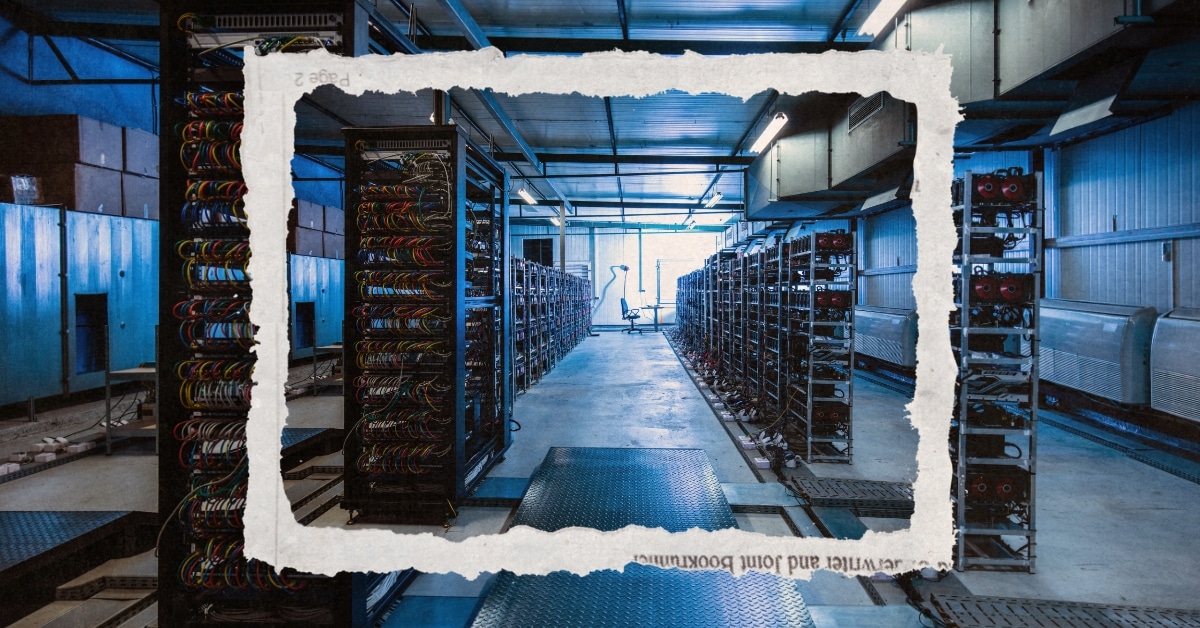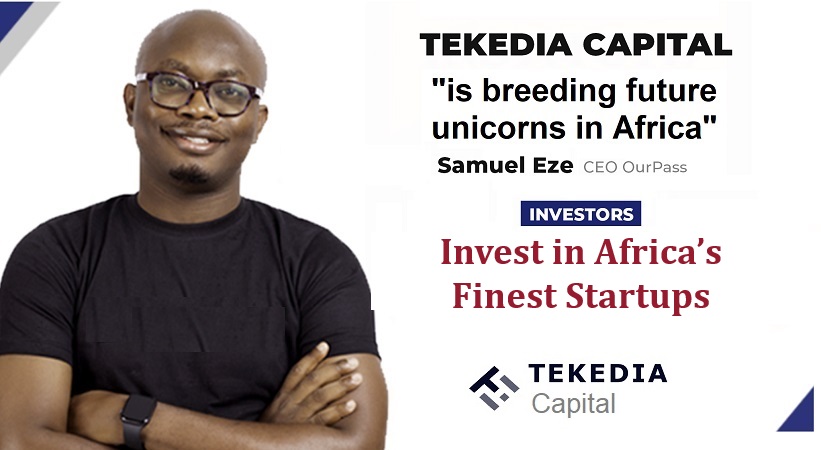News
Le truffe continuano a tormentare il mercato delle criptovalute, aiutate dall’intelligenza artificiale e dai social media: rapporto | Criptovaluta

Di Hannah Miller
Quando Jakob-Moritz Eberl ha cliccato su un collegamento al sito web di un’azienda di criptovaluta, è rimasto sbalordito da ciò che ha visto: il suo stesso volto che lo guardava.
La foto alla testa di Eberl è stata visualizzata sotto il nome “Mason Jones” e il titolo “Senior Blockchain Engineer” poiché uno dei sei uomini, secondo il sito, facevano parte del team dietro InfinityStakeChain. Un sito web quasi duplicato per una piattaforma chiamata FlexyStakes utilizzava le stesse foto sopra nomi diversi, identificando Eberl come “Noel Brennan”. Eberl, uno scienziato sociale dell’Università di Vienna che non possiede nemmeno alcuna criptovaluta, non aveva idea del motivo per cui la sua foto fosse sui siti.
Clicca qui per connetterti con noi su WhatsApp
“Non sono associato alle criptovalute”, ha detto in un’intervista. “Non seguo le criptovalute. Devo dire onestamente che ancora non capisco completamente le criptovalute.”
Quando l’ex amministratore delegato di FTX Sam Bankman-Fried è finito in prigione in seguito alla sua condanna per frode all’inizio di quest’anno, molti nel settore delle criptovalute hanno tirato un sospiro di sollievo pensando che il settore avrebbe potuto voltare pagina dopo anni di scandali. Eppure le truffe continuano a perseguitare questa asset class, e ci sono segnali che si sono riprese durante la ripresa del mercato di quest’anno.
Non si tratta solo di false foto alla testa e siti Web fuorvianti: gli apparenti truffatori hanno tentato di fingere la legittimità con falsi comunicati stampa su raccolte di fondi di capitale di rischio e false affermazioni su partnership con giganti del settore. In alcuni casi, le false informazioni sono trapelate in fonti di dati attendibili del settore.
Sia InfinityStakeChain che FlexyStakes hanno emesso comunicati stampa che sono stati pubblicati su agenzie di stampa, siti di notizie locali e Yahoo! Finance afferma di aver raccolto 12 milioni di dollari da investitori guidati da Binance, il più grande scambio di criptovalute al mondo. Sui loro siti web rivendicano anche partnership con altri grandi nomi del settore, tra cui Polygon, Avalanche, dydx e Fantom. Binance e gli altri hanno confermato a Bloomberg di non aver mai lavorato con nessuna di queste startup.
In un settore in cui l’attività di VC è attentamente monitorata dai trader alla ricerca di segnali su quali token acquistare, un investimento da parte di grandi nomi come Andreessen Horowitz o Dragonfly potrebbe ispirare i trader ad accaparrarsi il token di un nuovo progetto e ad aumentarne il prezzo. Con Bitcoin e altri token in rialzo quest’anno e la ripresa dei finanziamenti VC, il rischio è alto sia per gli investitori al dettaglio che per quelli istituzionali che desiderano trarre vantaggio dalla ripresa del mercato.
“È una frode, soprattutto se crei questi siti web”, ha detto l’analista crittografico di PitchBook Robert Le, che ha identificato InfinityStakeChain e FlexyStakes tra un gruppo di startup crittografiche che diffondono false informazioni sulla raccolta fondi.
Le richieste di Bloomberg sui due progetti sono rimaste senza risposta. InfinityStakeChain e FlexyStakes hanno utilizzato entrambi lo stesso linguaggio promozionale e hanno elencato gli stessi partner sui loro siti Web, sebbene il sito di InfinityStakeChain sia diventato inattivo nell’ultimo mese. Hanno persino rivendicato lo stesso indirizzo dell’ufficio in una tranquilla proprietà commerciale a Melbourne, in Australia.
L’edificio per uffici a sei livelli ospita un primo piano vuoto pieno di scrivanie abbandonate, alcune compagnie di spedizioni, un centro medico e un ufficio edile, ma non c’è traccia di FlexyStakes o InfinityStakeChain. Una receptionist di uno degli inquilini dell’edificio ha detto che, a sua conoscenza, nessuna azienda con nessuno di questi nomi aveva affittato uno spazio lì negli ultimi due anni. Il direttore dell’edificio, Colliers International Group, non ha risposto a un’e-mail in cerca di ulteriore conferma.
Non si sa quali siano i motivi di FlexyStakes e InfinityStakeChain. Le ha affermato che PitchBook, che tiene traccia dei dati sui capitali di rischio, ha recentemente assistito a un aumento delle attività fraudolente nel settore delle risorse digitali e che alcuni progetti sono semplicemente palesi truffe i cui falsi annunci di raccolta fondi potrebbero attirare vittime ignare su un sito dannoso.
“Quasi ogni giorno”
“Tutto quello che vogliono fare è farti accedere al sito web, collegare il tuo portafoglio per utilizzare l’oggetto e rubano tutti i tuoi fondi”, ha detto. “Vediamo così tanti progetti falsi che raccolgono fondi e pubblicano comunicati stampa falsi. Lo vedo quasi quotidianamente”.
Le truffe possono apparire in modo allarmante. Solo poche ore dopo che Tether Holdings Ltd. ha annunciato lunedì un nuovo token sintetico in dollari, l’amministratore delegato della società Paolo Ardoino ha pubblicato su X che “sembra che ci siano già diversi siti Web che tentano di impersonare il nostro nuovo prodotto Alloy di Tether. Non cascarci.”
Quando si tratta di InfinityStakeChain e FlexyStakes, Eberl non è stato l’unico il cui headshot è stato oggetto di appropriazione indebita. Ha riconosciuto anche altri due volti, incluso il presunto fondatore di entrambe le società. Eberl studia comunicazione e disinformazione su politica e salute, e ultimamente si è concentrato sulle reazioni del pubblico alle politiche Covid-19 in Austria. Ha riconosciuto la coppia dalla piattaforma di social media X poiché entrambi avevano pubblicato post sulle politiche Covid in Austria. Entrambi gli individui hanno confermato a Bloomberg di non essere coinvolti nelle startup crittografiche. Anche le altre tre persone le cui foto erano presenti sui siti web hanno confermato a Bloomberg di non essere in alcun modo collegate a nessuno dei due progetti.
Per Eberl, l’incidente è stato inquietante, anche se è abituato a ricevere commenti odiosi e molestie online riguardo alla sua ricerca. Sua moglie ha recentemente guardato il documentario Netflix Bitconned e lui era preoccupato di essere preso di mira da una truffa crittografica. Temeva addirittura che un’inchiesta di Bloomberg, che includeva un collegamento Zoom per un’intervista in videoconferenza, facesse parte di qualche stratagemma. Ha quindi chiesto se poteva inviare l’invito alla riunione dal proprio account per essere sicuro di non aver cliccato su un link dannoso.
Soprattutto, era anche preoccupato di essere collegato a qualcosa di potenzialmente fraudolento che avrebbe potuto danneggiare la sua reputazione e ferire vittime ignare.
“Non ho idea di come me lo sono meritato”, ha detto Eberl.
Un altro caso di disinformazione sulle criptovalute è stato recentemente evidenziato da una società chiamata Candle Labs. Diverse piattaforme di dati e notizie, tra cui Crunchbase, PitchBook e Silicon Valley Journals, hanno erroneamente riferito che la società aveva raccolto 48 milioni di dollari in un round di finanziamento di rischio di serie B, o in una fase successiva. Sam Safahi, 21 anni, ha fondato la startup crittografica nel 2022 insieme ad alcuni amici e a suo padre, Alan Safahi. L’anziano Safahi, che in precedenza aveva prestato servizio nel consiglio di amministrazione di Ripple Labs, sta ora scontando una pena di 40 mesi in una prigione federale per frode e riciclaggio di denaro relativo a una truffa con carte di debito prepagate da 2,7 milioni di dollari.
Il giovane Safahi ha dichiarato in un’intervista che la società non ha raccolto 48 milioni di dollari e non era sicuro di come siano circolate tali informazioni. “Abbiamo raccolto 1,2 milioni di dollari, principalmente da familiari o amici”, ha detto.
Il fatto che i dati errati sui 48 milioni di dollari di Candle Labs siano stati forniti intenzionalmente o erroneamente a queste piattaforme di dati non cambia il fatto che la disinformazione sia persistita. Secondo Safahi, la società alla fine ha chiuso l’anno scorso dopo aver ricevuto una lettera dalla Securities and Exchange Commission degli Stati Uniti in cui si lasciava intendere che il suo token CNDL era un titolo non registrato.
Notizie misteriose sulla raccolta fondi
“Quando mio padre uscirà di prigione, stavamo progettando di collaborare con la SEC per riavviarla, per farla funzionare”, ha detto.
Il Silicon Valley Journals ha dichiarato in un’e-mail a Bloomberg di aver ottenuto le informazioni da Crunchbase e successivamente di aver aggiornato l’articolo sulla raccolta fondi di Candle Labs per includere un’attribuzione a Crunchbase. Crunchbase ha un articolo che fa riferimento a una raccolta fondi di 48 milioni di dollari, nonché a una raccolta fondi di 1.000 dollari elencata nella pagina dei dati dell’azienda. La pagina dei dati di Candle Labs conteneva anche una riga che diceva: “Questa è una startup fraudolenta: se ricevi un’offerta di reclutamento da questi ragazzi, ignorala”.
I rappresentanti di Crunchbase hanno rifiutato di essere intervistati per questa storia. A seguito dell’indagine di Bloomberg, è stata rimossa la frase relativa alla presunta frode nei confronti di Candle Labs dalla pagina dei dati dell’azienda.
Un portavoce di PitchBook ha affermato che le informazioni provengono da “fonti pubblicate”. Dopo un controllo, il data tracker ha scelto di rimuovere la voce dal suo sito web.
Con così tanta disinformazione in atto, PitchBook ha dovuto cambiare il modo in cui tiene traccia del settore delle criptovalute, ha detto Le. Quando viene annunciato un round di finanziamento, Le spesso parla direttamente con gli investitori quotati, i soci accomandanti delle aziende e gli stessi fondatori per confermare che sono tutti coinvolti. Inoltre spesso conferma l’aumento utilizzando documenti governativi, se disponibili.
“Prendiamo più attenzione nel settore delle criptovalute per l’annuncio di una raccolta fondi che nel tradizionale settore del capitale di rischio”, ha affermato.
Un’altra nuova svolta nei suoi sforzi per combattere la disinformazione: l’intelligenza artificiale sta rendendo più difficile individuare cosa è reale e cosa non lo è. È probabile che sempre più truffatori utilizzino chatbot come ChatGPT per scrivere la lingua del loro sito web e i white paper che spiegano il loro progetto, ha detto Le, e il risultato è che i progetti di truffa risultano più raffinati rispetto al passato.
“C’erano tutti questi errori grammaticali e puoi semplicemente dire che è falso”, ha detto.
Bot e umani
I social media sono un altro fattore che complica la diffusione della disinformazione online, ha osservato Le. Ha detto che ci sono bot che eseguono scambi di criptovalute sulla base di notizie e post sui social media, il che significa che informazioni false possono aumentare artificialmente i prezzi dei token.
E non sono solo i bot a cascarci. Gli esseri umani reali sono particolarmente vulnerabili quando si tratta di informazioni finanziarie e ci sono poche garanzie sui siti di social media per impedire la diffusione di falsità, ha affermato Svitlana Volkova, capo scienziato dell’intelligenza artificiale presso la società di servizi di ingegneria Aptima Inc., la cui ricerca si è concentrata sulla disinformazione sulle criptovalute.
“Le persone condividono le informazioni senza verifica preventiva e vengono ricondivise e diventano virali”, ha affermato.
La disinformazione rappresenta un rischio non solo per i trader di criptovalute, ma anche per gli stessi venture capitalist. Le aziende di capitale di rischio nel settore delle criptovalute sono state criticate per non aver condotto un’adeguata due diligence e, in ultima analisi, per aver sostenuto startup fraudolente come FTX. È normale che i fondatori di criptovalute distorcano la verità, ha affermato Roger Royse, partner dello studio legale Haynes Boone.
“Sospensione della realtà”
“Qui nella Silicon Valley, dove lavoro, è nella natura di chi fonda una startup, che le persone abbiano un’arroganza che rasenta la sospensione della realtà”, ha detto Royse.
La questione di quanto lontano possano spingersi i fondatori quando si tratta di auto-esaltazione è stata sollevata in casi come quello contro Elizabeth Holmes e la sua startup di analisi del sangue Theranos. Sebbene i fondatori possano credere di avere il potenziale per avere successo ad alto livello, Royse ha affermato che ciò non significa che possano affermare di aver realizzato cose che non hanno realizzato. E mentire pubblicamente su un round di finanziamento, compreso l’importo raccolto, e convincere altri VC a investire sulla base di tali informazioni potrebbe rappresentare un problema legale.
“Se c’è una falsa rappresentazione di un fatto materiale, e questo induce l’investitore a investire, questa è la base di un reclamo per frode”, ha detto.
Per quanto riguarda Eberl, lo scienziato sociale di Vienna, non è chiaro se riuscirà a far rimuovere la sua immagine dal sito FlexyStakes.
“Da un certo punto di vista, credo di sentirmi violato dalla truffa delle criptovalute”, ha detto, aggiungendo che anche la sua curiosità accademica è stata stuzzicata: “Dall’altro, lo trovo estremamente strano e trovo questa connessione estremamente intrigante.”
News
US Cryptocurrency Rules Delayed by ‘Never-Ending’ Lawsuits

Ripple CEO says cryptocurrency industry still seeking regulatory clarity from US
Speaking to Bloomberg News on Wednesday (July 17), Author: Brad Garlinghouse he said America is behind behind other countries which have already adopted cryptocurrency regulations.
“What we’re seeing, where it’s the UK, Japan, Singapore… even the European Union, more than two dozen countries have come together to provide a framework for cryptocurrency regulation,” Garlinghouse said.
“It’s frustrating that we as a country can’t get that regulatory framework in place. And instead, we have this never-ending lawsuit coming from the SEC that doesn’t really address the problem.”
Ripple has been the target of some of these legal disputes. Securities and Exchange Commission (SEC) sued the company in 2020, accusing it of conducting a $1.3 billion operation offering of unregistered securities tied to its XRP token.
However, last year a judge ruled that only Ripple’s institutional sales of XRP, not retail sales, violated the law, a decision widely seen as a victory for the cryptocurrency industry.
As PYMNTS noted at the time, that ruling has “far-reaching repercussions impact across the digital asset ecosystem, which has long maintained that its tokens do not represent securities contracts.”
However, Garlinghouse told Bloomberg on Wednesday that the company cannot wage multimillion-dollar legal battles over each token.
He spoke to the news agency from the Republican National Convention in Milwaukee, where the party is backing the candidacies of former President Donald Trump and Ohio Sen. J.D. Vance, both of whom are considered pro-cryptocurrency.
But Garlinghouse argued that cryptocurrencies “should not be a partisan issue,” and noted that he had recently attended a conference in Washington that included Democrats, including White House officials.
“I think they were there, listening to the industry… it was refreshing to start having that conversation,” she said.
President Joe Biden earlier this year he vetoed a measure which would have ended the SEC’s special rules for crypto-asset custodians. This legislation was supported by both the digital asset industry and the banking industry.
Ripple early this year donated $25 million to the cryptocurrency industry’s super PAC Fair Smoothiewith Garlinghouse stating at the time that such donations would continue every year, as long as the industry had its detractors.
Second Open SecretsWhich monitor spending For campaigns, the PAC has spent $13.4 million this year, much of it to help defeat Rep. Katie Porter’s (D-Calif.) U.S. Senate campaign.
News
The Future of Cybersecurity in the Cryptocurrency Industry

The cryptocurrency space has had a tumultuous journey, with its fair share of ups and downs. As we look to the future, one area that remains a constant focus is cybersecurity. The digital nature of cryptocurrencies makes them inherently vulnerable to cyber threats, and as the industry evolves, so does the landscape of potential risks.
In 2022, the cryptocurrency market faced significant challenges, with over $2 trillion in market value lost. This event served as a wake-up call for the industry, highlighting the need for robust cybersecurity measures. The future of cryptocurrency security is expected to see a shift towards more regulated and established institutions taking the reins of crypto technology and blockchain infrastructure.
The decentralized nature of cryptocurrencies offers numerous benefits, such as transparency and financial inclusion. However, it also introduces unique security challenges. The risk landscape is filled with threats such as hacking, phishing, ransomware attacks, malware, and social engineering. These threats not only lead to financial losses, but also damage the reputation and trust within the cryptocurrency ecosystem.
Mini-MBA Tekedia edition 15 ((September 9 – December 7, 2024) started recordings; Register today for discounts reserved for early bird customers.
Tekedia AI in Business Masterclass Opens registrations Here.
Join the Tekedia Capital Syndicate and IInvest in Africa’s best startups Here.
The decentralized nature of cryptocurrencies offers many benefits, but it also presents unique security challenges. Cyber risks such as hacking, phishing, and ransomware pose threats to the integrity of digital assets. The infrastructure that supports cryptocurrencies is not immune to vulnerabilities, including smart contract flaws and exchange hacks.
To address these vulnerabilities, the infrastructure that supports cryptocurrencies must be strengthened. Smart contract vulnerabilities, exchange hacks, wallet breaches, and flaws in the underlying blockchain technology are significant concerns that must be addressed to ensure the security and integrity of digital assets.
As cybercriminal tactics and techniques become more sophisticated, the cryptocurrency industry must stay ahead of the curve. The future will likely see more targeted attacks, exploiting weaknesses in infrastructure, networks, and human factors. This requires a proactive and multifaceted approach to cybersecurity.
To mitigate these risks, several measures must be adopted:
Strengthening security measures: Developers, exchanges, and wallet providers must improve security protocols, use strong encryption, implement multi-factor authentication, and conduct regular security audits.
Education and awareness: Users should be educated on best practices for protecting their digital assets, including using strong passwords, recognizing phishing attempts, and using hardware wallets for secure storage.
Looking ahead, the cryptocurrency industry is expected to see an increased focus on robust security measures. Blockchain projects and exchanges are likely to invest in advanced encryption techniques and decentralized storage solutions to protect user assets. The future impact of cyber risk on cryptocurrencies will depend on the collective efforts of stakeholders to address vulnerabilities and strengthen security measures.
Collective efforts by stakeholders in the cryptocurrency space are crucial to address vulnerabilities and strengthen security measures. While challenges persist, advances in cybersecurity technologies and practices offer hope for a more secure and resilient cryptocurrency ecosystem.
The future of cybersecurity in the cryptocurrency industry depends on finding a balance between innovation and regulation. It requires a collaborative effort from all parties involved, from developers to end users, to create a secure environment that fosters trust and growth in the industry. As we move forward, it is critical that lessons learned from past events guide the development of stronger security measures, ensuring the longevity and stability of cryptocurrencies as a vital part of the modern economic toolkit.
Like this:
Like Loading…
News
Bullish XRP and RLBK price predictions rise, outpacing the broader cryptocurrency market, prompting Shiba Inu holders to switch!

Bitcoin’s one-week surge from $60,000 has pushed other cryptocurrencies into an uptrend. However, for many altcoins, this trend has been temporary. Altcoins such as XRP and Shiba Inu (SHIB) have experienced price drops. However, Rollblock, a new altcoin on the Ethereum blockchain, has thrived during this period, attracting thousands of investors looking for long-term growth.
XRP’s Nearly 30% Growth Over Last Week Drops as Selling Pressure Increases
XRP is seeing further price decline as Ripple investors withdraw their profits from the token. The surge in XRP’s price to $0.64 in the past week has provided investors with a perfect opportunity to increase their returns in the short term. With the ongoing sell-off in XRP, XRP has jumped over 8% in the past day and is now trading at $0.59. However, analysts tracking XRP indicators predict that XRP could still extend its gains by over 30% in the coming weeks.
Shiba Inu (SHIB) marks its third consecutive day of losses
Shiba Inu (SHIB) is in a period of adjustment after a week of strong gains. In the last 24 hours, SHIB has seen a jump of over 7%, reflecting a natural market fluctuation. Analysts are observing a death cross on the Shiba Inu chart, which historically signals the potential for future opportunities as the market stabilizes. As investors explore new possibilities, some are diversifying into promising altcoins like Rollblock (RBLK) to strategically rebalance their portfolios and capitalize on the emerging trend.
Rollblock (RBLK) Up Another 7% as New Investors Join Pre-Sale
Rollblock (RBLK) has taken the cryptocurrency market by storm, having attracted investors from more popular altcoins like Shiba Inu (SHIB) and XRP. Rollblock’s growth is attributed to its utility in the $450 billion global gaming industry.
Rollblock aims to use blockchain technology to bridge the gap between centralized and decentralized gambling. With blockchain technology, Rollblock secures every transaction in its online casino, providing transparency and convenience to millions of players who are uncomfortable placing bets on other iGaming platforms.
This innovative use of blockchain technology in the industry has grown Rollblock to over 4,000 new users in less than two months. With plans to add sports betting, this number is expected to grow exponentially in Q3.
Rollblock uses a revenue sharing model that splits up to 30% of its casino’s weekly profits with token holders. This happens after Rollblock buys back $RBLK from the open market and uses half of it for rewards. The other half is burned to increase the price of $RBLK.
Rollblock price has seen four increases in the past month with $RBLK tokens now selling for $0.017. Analysts predict that at the current growth rate, Rollblock could increase by over 800% before the presale ends. For investors looking for a long-term token with growth potential, phase four is the best time to buy Rollblock before its price skyrockets!
Discover the exciting Rollblock (RBLK) pre-sale opportunities now!
Website:https://Rollblockpresale.io/
Social: https://linktr.ee/Rollblockcasino
No spam, no lies, just insights. You can unsubscribe at any time.
News
Texas Crypto Miners Turn to AI as Crypto Declines

As cryptocurrency mining becomes less profitable, Texas cryptocurrency mining companies are switching to supporting artificial intelligence companies.
Bitcoin miners, with their sprawling data centers and access to significant energy resources, are ideally suited for computationally intensive AI operations, and as cryptocurrency mining becomes less profitable, companies see this shift as a logical answer to their problems.
On Thursday, Houston-based Lancium and Denver-based Crusoe Energy Systems announced a multibillion-dollar deal to build a 200-megawatt data center near the West Texas city of Abilene to support advanced artificial intelligence applications such as medical research and aircraft design, CNBC reported. The plant represents the first phase of a larger 1.2 gigawatt project.
Lancium and Crusoe’s move into AI mirrors a broader trend among bitcoin miners. The combined market capitalization of the top U.S.-listed bitcoin miners hit a record $22.8 billion in June. Companies like Bit Digital and Hut 8 are diversifying into AI, with Bit Digital securing a $92 million annual revenue deal to supply Nvidia GPUs and Hut 8 raising $150 million to expand its AI data center.
But the growing popularity of these operations also presents challenges, particularly for the Texas power grid. Last month, the Electric Reliability Council of Texas announced that the state is expected to nearly double its energy production by 2030 to meet the high energy demands of data centers and cryptocurrency operations.
Lieutenant Governor Dan Patrick expressed concern about the projections.
“Cryptocurrency miners and data centers will account for more than 50% of the additional growth. We need to take a close look at these two sectors,” He wrote on Twitter/X. “They produce very few jobs compared to the incredible demands they place on our network. Cryptocurrency miners could actually make more money selling electricity to the network than they do from their cryptocurrency mining operations.”
Analysts predict significant growth in data center power capacity, which is expected to account for up to 9% of U.S. electricity consumption by 2030.
The operations also pose challenges for nearby cities. Earlier this month, TIME reported that a crypto-mining facility was seriously compromising the health of residents in the city of Granbury. TIME reported more than 40 people with serious health problems, including cardiovascular disease, high blood pressure and hearing loss. At least 10 of the residents needed to go to the emergency room or an urgent care facility.
The disturbances were caused by the extreme noise generated by the crypto-mining facility’s fans, which are used to keep the machines cool. While the proposed data center in Abilene would use liquid cooling systems, it’s still unclear whether the facility’s operations would pose a health risk to local residents.
-

 Nfts12 months ago
Nfts12 months agoShardLab Launches ZK-Based Tool for Digital Identity and NFT Vouchers
-

 News1 year ago
News1 year agoWallet recovery firms are abuzz as stranded cryptocurrency investors panic in the bitcoin boom
-

 Bitcoin12 months ago
Bitcoin12 months agoBitcoin, Ethereum, Solana and Cryptocurrency Markets Look Ready to ‘Send’ as Stars Align, According to Investor Chris Burniske
-

 Altcoins11 months ago
Altcoins11 months agoThree Altcoins Poised for Significant Growth in 2024: ETFS, OP, BLAST
-

 Altcoins11 months ago
Altcoins11 months agoAccumulate these altcoins now for maximum gains
-

 Nfts12 months ago
Nfts12 months agoOG Crypto Artist Trevor Jones Unveils Groundbreaking Collection of Ordinals | NFT CULTURE | NFT News | Web3 Culture
-

 Bitcoin12 months ago
Bitcoin12 months agoBillionaires are selling Nvidia stock and buying an index fund that could rise as much as 5,655%, according to some Wall Street analysts
-

 Videos8 months ago
Videos8 months agoKamala just won the boner! [Bad For Crypto]
-

 Videos1 year ago
Videos1 year agoLIVE FOMC 🚨 Could be CATASTROPHIC for Altcoins!
-

 Videos1 year ago
Videos1 year agoSTOCK MARKET FUD! ⚠️ [Why This Is GREAT For Bitcoin Traders!]
-

 Videos1 year ago
Videos1 year agoAttention: a historically significant BITCOIN signal has just appeared!
-

 News1 year ago
News1 year agoA Guide for Newcomers & Beginners – Forbes Advisor



















